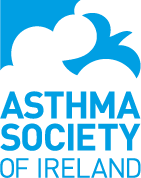
What you need to know about Pneumo
Pneumococcal disease, or Pneumo, is an infection caused by bacteria called Streptococcus pneumoniae. These bacteria usually reside in the upper respiratory tract in people worldwide.1
It generally causes mild infections. When it spreads into other parts of the body, it can lead to severe health problems like pneumonia and meningitis.3

Pneumo bacteria are spread in the same way as colds and flu. The bacteria are airborne, meaning they spread through the air via droplets, when someone coughs, sneezes, or any method of close contact.1,3
Everybody is at risk of getting pneumo disease but older people and very young children are most at risk from infection.1

The pneumo vaccine (PPV23), is recommended for1:
- Individuals aged 65 years or older.
- Those aged 2 or over in at-risk groups, such as those with long-term medical conditions such as:
- Diabetes
- Chronic heart disease
- Chronic lung disease
- Chronic liver or kidney disease
- Chronic neurological disease
- Children aged over 2 years and under 5 years of age with a history of invasive pneumococcal disease
- Coeliac disease
- Down Syndrome
- Immune deficiency because of a disease or treatment, including cancer patients
- HIV infection
- Cochlear implants or are about to get cochlear implants
- Absent spleen or a non-functioning spleen
- CSF leaks, either congenital or complicating skull fractures or neurosurgery
- Intracranial shunt
PPV23 prevents complications like pneumonia and meningitis, reducing the overall impact of the disease.6

You can get the vaccine through your GP for free if you are6:
- 65 years old or older
- Aged 2 or over and in an at-risk group
Speak to your doctor, practice nurse or pharmacist for vaccine information.

If you are age 65 years or older, you only need a single dose of the vaccine.6
If you are aged between 2 and 64, two doses may be needed, spaced at least 5 years apart.6 Speak to your doctor, practice nurse or pharmacist for vaccine information.
The pneumo conjugate vaccine PCV13 is given to babies as part of the childhood immunisation schedule.3

The vaccine can lead to mild side effect like pain, redness, and injection site swelling. Other common effects include headaches, tiredness, and muscle aches.6

The pneumo vaccine is not recommended for healthy children and younger adults with no specific health conditions.6
Individuals who’ve had an allergic reaction to the vaccine or any ingredient in the vaccine should avoid it.6

You can get the pneumo vaccine at the same time as the flu vaccine or COVID-19 vaccine.6

1. HSE Pneumococcal Disease – Vaccine (Accessed September 2024)
2. HPSC-Infectious Disease Notifications in Ireland 2019-2023 (Accessed September 2024)
3. HSE Pneumococcal Disease – Disease & Vaccine (Accessed September 2024)
4. Kyaw MH, et. al. J Infect Dis. 2005 Aug 1;192(3):377-86
5. B&A Research (MSD Data on File 2023. The research was commissioned by MSD Ireland and carried out by Behaviour and Attitudes on a sample population of 1,458 adults in Ireland.)
6. HSE Pneumococcal Disease – Vaccine for people at risk (Accessed September 2024)
Supported by


